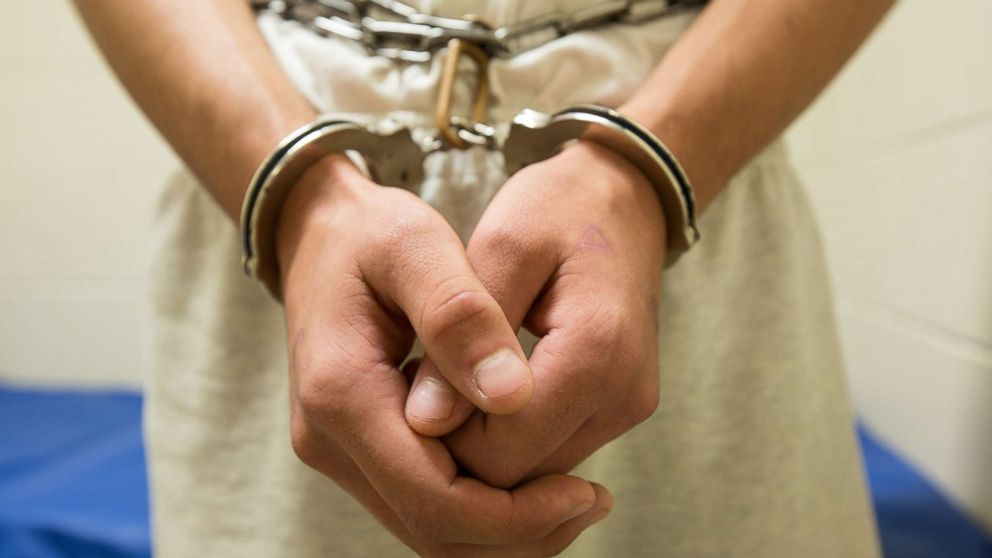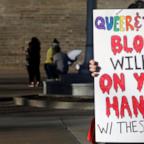LGBT+ youth face tougher time as first offenders, study finds
A new study is shedding light on first offenders and mental health struggles.

Teens who get in trouble with the law have high rates of substance abuse and mental health issues, but the problems are even worse for lesbian, gay, bisexual, transgender and queer adolescents who are first-time offenders, researchers say in a study published today in the Journal of Adolescent Health.
“We already know that adolescents involved in the justice system are at higher risk for drug and alcohol use, risky sexual behaviors and HIV, and more severe mental health issues,” Dr. Matt Hirschtritt, lead author of the study and a Forensic Psychiatry Fellow at University of California, San Francisco (UCSF), told ABC News.
“There’s far fewer data [on] those that are not detained, who are court-involved but not incarcerated," Hirschtritt said. "And adolescents who are sexual minorities -- in behavior, orientation or gender expression -- are also at risk for a lot of these same behaviors. So when you combine these two vulnerabilities, does this confer greater individual risk [of health problems]?”
It can be liberating not to blame yourself and not feel like a failure.
To answer the question, a team led by Dr. Marina Tolou-Shams, an associate professor in the Department of Psychiatry at UCSF, used more than one strategy to find teens who identified as a sexual minority, including those who chose “other” for gender, reported same-sex sexual behavior and reported victimization based on sexual orientation or gender expression.
Among 423 first-time offending, non-incarcerated youth, about one-third could be classified as a sexual minority, which was “one of the biggest things we found that jumped out to us,” said Hirschtritt. “Sexual minorities are over-represented, and this number is also found in detained adolescents [those who end up in a locked facility].”
Other findings of the study include higher rates of behavioral and mental health symptoms in first-time offending, (non-jailed) sexual minority youth, including unhealthy internalizing of problems, inattention/hyperactivity, emotional symptoms and personal adjustment issues.
“Our suspicions were confirmed that mental health indicators as measured by self-report of various domains in psychological functioning were more severe for sexual minority youth compared to non-sexual minority youth,” said Hirschtritt.
Also notable is that the rate of self-harm is four times higher in sexual minorities than in their heterosexual peers, higher rates of substance abuse and a 60 percent higher rate of being intoxicated during sexual activity.
“What was interesting was what wasn’t different between groups -- self-reported history of delinquent acts and sensation-seeking,” Hirschtritt adds. “Sexual minority youth are at higher risk for risky drug use and sexual behavior and/or more severe psychological distress, but they’re not necessarily more likely to have engaged in delinquent acts or drawn to behavior that would generate a delinquent effect with sensation-seeking.”
Instead, trouble with the law is “more a product of their marginalization,” he believes. “We’re seeing a dually vulnerable group that’s subjected to stressors of court but also have historically marginalized identity.”
Related Stories
In fact, these court-involved LGBT+ youth reported more post-traumatic symptoms in the past seven days than their heterosexual peers.
These findings aren’t surprising to Dr. Alex S. Keuroghlian, director of the National LGBT Health Education Center and a clinical psychiatrist at Massachusetts General Hospital and Fenway Health, a large LGBT-focused health center in Boston.
“We call this the minority stress model,” Keuroghlian told ABC News. “External stigma-related stress like everyday victimization, violent victimization, can lead to internalized stigma-related stress regarding sexual orientation and gender identity, such as internalized homophobia and transphobia. This can be associated with higher prevalence of mental health problems and decreased self-care, and higher prevalence of physical health problems down the road.”
And when it comes to LGBT+ youth and getting in trouble with the law, he’s quick to clarify, “There's nothing inherently more criminal about this population. It’s due to life circumstances, due to stigma and discrimination.”
In his experience, Keuroghlian said “LGBTQ youth are much more likely to have strained relationships with family, to be ostracized from peers. And all this can predispose someone to needing to survive by means other people may not need to, getting into problems with the law.”
This points to the importance of identifying sexual attraction preferences and helping those individuals deal with the stressors of living in a society that assumes everyone is straight until told otherwise.
Keuroghlian’s advice? Reframe the conversation.
“Young people will attribute challenges in their lives to personal failings, and focus on maladaptive cognitive structures, like 'it’ll never get better, no one will ever love me.' It’s important to correctly attribute challenges in their life to external stigma. It can be liberating not to blame yourself and not feel like a failure.”
The most important thing is helping LGBT+ youth recognize there is a community out there for support.
“It’s a tremendous source of empowerment [knowing] what people have accomplished in the last few decades,” Keuroghlian advised, because LGBT+ people are "more integrated into the mainstream fabric of American society than ever before."
Dr. Stephanie Sophie Lee is a pediatrician and preventive medicine resident in South Carolina and a resident in the ABC News Medical Unit.




